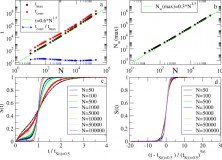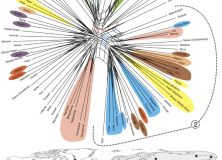Since its resurgence in the 90s Multi-agent models have been a close companion of evolutionary linguistics (which for me subsumes both the study of the evolution of Language with a capital L as well as language evolution, i.e. evolutionary approaches to language change). I’d probably go as far as saying that the early models, oozing with exciting emergent phenomena, actually helped in sparking this increased interest in the first place! But since multi-agent modelling is more of a ‘tool’ rather than a self-contained discipline, there don’t seem to be any guides on what makes a model ‘good’ or ‘bad’. Even more importantly, models are hardly ever reviewed or discussed on their own merits, but only in the context of specific papers and the specific claims that they are supposed to support.
This lack of discussion about models per se can make it difficult for non-specialist readers to evaluate whether a certain type of model is actually suitable to address the questions at hand, and whether the interpretation of the model’s results actually warrants the conclusions of the paper. At its worst this can render the modelling literature inaccessible to the non-modeller, which is clearly not the point. So I thought I’d share my 2 cents on the topic by scrutinising a few modelling papers and highlight some caveats, and hopefully also to serve as a guide to the aspiring modeller!


